One of the most stressful and critical situations the average citizen can experience is adversarial contact when dealing with police.
Such mistakes or over-reactions can have tragic consequences. At the very least, your liberty could be interrupted temporarily or indefinitely. At the very worst, your life could be ended.
Just how dangerous is contact with the police? Well, that depends on a lot of factors. Your own preconceptions also come into play. All too often, law enforcement officers are seen as negative. This is not a fair assumption to make.
However, there is no denying that there have been what appears to be a trend of questionable shootings of unarmed persons and numerous incidents of other police misconduct recently which should concern all of us.
Table of Contents
Don’t Become Anti-Police
Some of the information contained herein may seem somewhat critical, anti-police, or designed with the intent to thwart police activities. That is not the intent of this article.
The intent of this article is to provide you with the information necessary when dealing with police and to protect you and your family from any misuse or abuse of the police powers by the state.
As a retired police officer, I realize what a difficult, dangerous, and often thankless job being a police officer can be. The vast majority of officers do a great job and deserve our support and respect.
Whenever we are forced to take measures to safeguard our freedoms, exercise our rights, and protect ourselves and our families we may find ourselves dealing with police. Whether this police contact results in a positive or negative outcome will depend in some part upon how you conduct yourself, what you say and how you say it. it also depends on remaining calm, in control, and credible.
PART I
Why Should Any of This Concern You?
After all, you are a law-abiding citizen. There is no reason why the police would be contacting or detaining you, right? Wrong! There are factions of the federal, state, and city governments that are hostile towards certain non-criminal segments of American citizens.
These government factions are willing to hurt you and your family to force compliance with their unconstitutional dictates. Some branches of government such as the Department of Homeland Security may target you as a domestic terrorist just because you are a gun owner, a veteran, or a ‘prepper’.
Additionally, governments have used their police powers to employ force against citizens whose only ‘crime’ was selling raw milk or growing a vegetable garden in their front yards. Therefore, it is essential for your continued liberty and well-being that you become aware of what to do and say when dealing with police, or more importantly what not to do and say, during a contact with the police so you can legally and literally survive the encounter.
They Do Not Care About Your Rights.
The information in this article is more than just about knowing your rights. In many street encounters when dealing with police, your rights are the last thing on the minds of the officers initiating contact with you. Police officers are concerned with their own safety first and not your rights when they contact you. While most officers may respect your rights, they are not going to jeopardize their safety for them.
Based upon whatever information they may be acting upon, no matter how erroneous it may be, they may perceive you not only as a suspect but also as being ‘armed and dangerous.’ Hence, you might be perceived as an immediate deadly threat to them or the public.
In such cases, it will be incumbent upon you to act in such a way as to not cause the officers to make a tragic mistake. Your first objective when dealing with police is to stay alive and safe from injury. Everything else is secondary and can be resolved later. Nevertheless, you should always strive to protest your innocence and avoid doing or saying anything that could incriminate you.
The Reality of Modern Policing
For many public officials, the US Constitution is an abstract principle to be ignored when convenient. Consequently, you may be placed in an adversarial situation with the police just for exercising your rights even if you were the one to initiate that contact.
Policing in America has been radically altered in the last 20 years. Many of your standard assumptions about the police, their conduct, and their mission may be grossly out of date.
Your misconceptions about police actions and responses could get you arrested, hurt, or killed today. Regrettably, many of today’s police officers are confused, unsure, and stressed to the limit. Because of this, he or she may make bad decisions that could forever affect you or your family.
Today’s officers are faced with a variety of difficult challenges that go beyond the usual expected dangers and threats from common criminals. Add to this mix the fact that a growing number of officers today are emotionally and physically unfit for the job.
Why have so many ‘unfit’ people been hired to be police officers? Based on my personal observations after 30 plus years as a police officer, I can only conclude that the reduced hiring standards used to meet quotas was the primary culprit.
The emotionally and physically unfit officer coupled with a questionable modern police training philosophy makes tragic mistakes and over-reactions inevitable. However, unfit officers and a questionable training philosophy are not the whole story, even the best of officers can have a bad day or make a mistake. They are only human.
Dealing with highly stressful and dangerous situations requiring split-second decisions, usually made without enough facts, always holds the potential for disaster. That is why it is up to you to protect yourself, your family, and your rights by being well-informed and prepared when dealing with police.
PART II
General Information to Consider in Preparing a Strategy
If you ascribe to the ‘preparedness’ philosophy, you already know the value of always being aware and always being prepared for anything which could threaten your or your family’s survival. Developing a strategy is the general key to survival. Dealing with the police is no exception to this philosophy.
You must have a plan or strategy in place before dealing with the police. However, before you can develop a strategy for dealing with police contacts, the following listed 22 observations and generalizations about today’s police and policing need to be considered by you before any planned or unplanned contact with the police:
-
- The police are not yours or anyone else’s friend.
The officer can’t tell by looking at you whether you are a good guy or a bad guy. So, you are a potential threat to his safety. Even if he feels you are not a criminal he knows that most of the so-called law-abiding public are liars and unreasonable.
He must also give the impression of impartiality. Cops are not your enemies per se, but they are not on your side either and they can become your temporary adversaries. Don’t ever assume the officer is on ‘your side’.
-
- According to the US Supreme Court the police have no legal duty to protect or help you unless you are in their custody.
So, do not expect protection or help especially in an unruly crowd or public demonstration situation. Don’t believe in the ‘public servant’ myth. Many cops hate being viewed as ‘servants’ of any kind.
While most of the rank and file officers want to help the public, there is a limit to what they can do. Do not rely on the police. Rely upon yourself first and foremost. The responsibility for your and your family’s safety is primarily in your hands.
-
- The police don’t really care if you are ‘right’ or your cause is just.
Regardless of what his personal beliefs may be, on the street the officer is only interested in taking care of the business before him such as breaking up the fight, quelling the disturbance, making the arrest, or seizing the evidence. It does not matter to him whether you have the moral or constitutional high ground.
-
- Cops are super stressed and therefore, can be easily ‘triggered’.
An angry cop may teach you a lesson by beating you, arresting you when he really didn’t have to, or by writing his reports to screw you.
I recommend you don’t yell at or argue when dealing with police – you will never win the argument and you may talk yourself into jail. You can and should voice your disagreement, but don’t be disrespectful or condescending in the process.
-
- When voicing your opinion or displeasure, avoid creating the appearance that you are angry to point that you may escalate into aggression.
Being unable to control your anger, language, or gestures when speaking to an officer may get you arrested, hurt, or killed. You can be curt, but never engage in name-calling, profanity, threats, or personal insults. Just don’t over-react or meltdown. And never say anything stupid such as you have guns, will get revenge, or that you are some ‘sovereign citizen’.
Don’t give the officer any reason to think you are a kook or paranoid. Remain calm and in control of your emotions and actions when dealing with police. Your conduct during the police contact can make or break your credibility in the situation.
-
- Don’t play the ‘lawyer trump card’.
You can voice your objections, but do not threaten that you will call your lawyer when dealing with police. Cops are not impressed by lawyers and they also know full well that 99% of lawyers won’t do a damn thing about your situation.
Better to ‘advise’ the officer that you will be calling his/her supervisor or Internal Affairs. Cops are not afraid of lawyers, but they are afraid of Internal Affairs.
-
- Avoid acting like a know-it-all street lawyer or dropping names.
If you continually quote the law to the officer or tell the officer he must do something or refrain from doing something because your lawyer said so, the officer will go out of his way to do the exact opposite that you request.
Few things irritate cops more than that. Likewise, don’t drop names of so-called important people. It will have the opposite effect of what you intended.
-
- Cops favor people who speak in a calm, rational manner.
I will reiterate this over and over because it is so important. If you can comport yourself in a calm manner, most often the officer will give you the benefit of the doubt when it comes down to believing you versus your accuser.
-
- Always deal with the police in a confident and respectful manner.
You don’t have to cower before the officer or kiss his butt. Cops don’t respect that anyways. If you have a problem with what the officer is doing when dealing with police, ask him for an explanation or to speak to his supervisor.
However, don’t complain about the officer’s demeanor or ‘attitude’. Save your complaints for things that really matter such as a false arrest, an illegal search or seizure, excessive force, etc.
-
- The first to complain usually wins.
If you have some altercation with someone and you expect he or she will file a complaint against you with the police, it is sometimes better to call the police first and complain on that person before they complain on you.
For some psychological reason, cops and others naturally assume the first to complain is usually the real victim.
-
- Avoid lying to the police.
In some situations, lying to the police is a crime. Regardless, if the cop catches you in that lie you are most likely going to jail. If you cannot tell the truth without incriminating yourself then generally deny the accusations and state that you wish to cooperate, but you need to speak to your lawyer first before saying anything else. Then shut-up!
-
- Obey the officer’s commands and don’t resist them.
If the officer is barking commands at you when dealing with the police, he obviously considers you an immediate deadly threat. Failure to follow his commands or making any stupid movements will result in you being Tasered, beat, bit by a police canine, or shot dead.
The same philosophy applies with physically resisting his efforts to control and detain you, you will go to jail anyways with more charges or you will end up in the hospital or the morgue. Even though some states allow citizens to resist the use of unlawful force by the police, it is more often far better to not resist and sue them later than it is to be buried.
-
- Don’t do anything stupid
Never make sudden gesture when dealing with polices that could be misperceived as a prelude to an attack. Drop whatever is in your hands so the officers will not perceive you as holding a weapon.
Don’t reach for anything in your pocket or waistband. Avoid reaching under your car seat or into your glove box. Don’t suddenly approach an officer and never invade his personal space. Do not give the officer any reason to fear you or an excuse to use force against you.
-
- Don’t try to evade or run when dealing with police by car or foot.
First, you will most likely be caught and face more serious charges than the trivial problem you were trying to avoid. You may be able to outrun the fat old cop, but you won’t escape the perimeter the other cops will set up and that police canine will track you down, run you down, and bite you.
Second, running is a sign of guilt. No cop will believe your story after you fled even if you have done nothing wrong. Running or hiding from the police is different from departing from the scene before the police arrive which is almost always a good idea.
-
- Younger officers are more likely to arrest you than older officers.
When dealing with police, younger officers are more likely to be more eager to arrest people than older officers because they are out to make a name for themselves on the department, they are into stats, and they want to impress their supervisors. Older officers could not care less about those things.
The younger officer is looking for a reason to arrest you while the older officer is looking for an excuse not to arrest you. However, the older officer may be cranky and less patient with any ‘attitude’ you may throw at him. So, don’t provoke the older officer into doing something he did not want to do.
-
- Today’s younger officers may have more college hours but many lack common sense.
Consequently, you may have to explain things to them several times before they get it. Also, their lack of common sense prompts them to make rash or poor decisions. Many are obsessed with making busts no matter how weak the case is. Their departments encourage this mentality.
-
- Many of the wrong kind of people were hired as police officers over the past 20 years.
Some younger cops can act very immature. To some of them, police work is a game until something goes wrong and they then fall to pieces. A few are functional sociopaths and psychopaths who are obsessed with the authority and tend to abuse it if they can get away with it.
This kind often gets promoted to upper management positions. And, as already stated, reduced hiring standards have led to many people unfit for police work being hired.
-
- Many of today’s officers are not very confident in their physical abilities and will panic or over-react in stressful situations.
This fear or panic is why we have had so many shootings of unarmed subjects both white and black. In some instances, the officers panicked and over-reacted with the use of deadly force before it was necessary to resort to it.
A lot of this is also due to the ‘scare tactics’ of the modern training philosophy of “When in doubt. Shoot it out” where everyone who is uncooperative is considered an immediate deadly threat to the officer. More than a few of today’s officers are afraid to go ‘hands-on’ with a suspect and will immediately resort to a Taser or a firearm even in situations where that extreme level of force was not necessary.
-
- Many police vehicles are equipped with video recorders and many officers carry audio recorders or body video cameras.
This can work to your advantage as proof of your side of the story. Nevertheless, buy your own dashcam recorder or use your cell phone video system when dealing with police. Be advised that most officers do not like being video recorded by citizens.
I hate to admit this, but this stems from an ingrained institutional mindset that their actions are not subject to scrutiny or criticism.
Expect a bad reaction from video recording their actions, but do it anyway. Why? Aside from the fact that it can serve as a deterrent to police misconduct, or provide evidence of such, do it because it is your right to do so.
So long as your video recording does not interfere with the officer performing his duties or invades his personal space, it is not a crime to video record.
-
- The police are over-militarized and use any excuse to activate SWAT teams no matter how minor the threat is.
There are several reasons for this over-use of SWAT. One reason is because there are some officers who just love to play soldier. Another reason is that the police feel pressured to use all that fancy and expensive SWAT equipment to justify having it.
-
- Some police departments really don’t care about fighting crime.
Today’s police administrations care little about preventing or investigating real crimes. Instead, they are more concerned with ‘public relations’, politics, political correctness, civil liability, and revenue generation from fines collected from traffic and parking tickets.
-
- The most important considerations to remember.
Probably the most important rule to remember when dealing with police is that when in doubt, keep your mouth shut. Better yet, avoid interaction with the police if possible.
Never, ever let a police officer into your home even if you are the one who summoned him. Conduct your business with the officer on your driveway, not in your living room. Unless the officer has a search warrant or he is there at your request to investigate a burglary of your home, deny him entry into your home.
PART III
Knowing your Rights – Exceptions to the Search and Arrest Warrant Requirement
Before explaining the basic types of police contact you may experience, let me explain the exceptions to the 4th Amendment requirement of arrest and search warrants.
These are rights you should know when dealing with the police.
There are some in police work who don’t want you to know your rights. Knowing and exercising your rights makes their jobs harder.
While these legalities are important to know, they will not save your life or even keep you from being arrested. In a police contact gone bad, your rights are meaningless until after the smoke clears. Your primary objective in any police encounter is to remain alive and unharmed.
All arrests and searches conducted without a warrant are presumed to be “unreasonable” under the 4th Amendment to the U.S. Constitution. All the exceptions to the arrest warrant requirement are by statute.
All the exceptions to the search warrant requirement are by court decisions. Therefore, the state has the burden of showing that the warrantless arrest or search was made pursuant to one of the statutory or court decision exceptions.
Generally, officers are empowered to make warrantless arrests for any crime committed within their presence or view. For warrantless felony arrests, probable cause alone suffices.
There are some misdemeanor crimes such as domestic violence, batteries, and some traffic crimes such as DUI and reckless driving which only require probable cause for an arrest. However, for most misdemeanors, when dealing with police, the officer must view the crime to make a warrantless arrest.
Furthermore, an officer has the authority to stop, detain, and question you upon finding you in places and under circumstances that create “articulable reasonable suspicion” in the officer’s mind that criminal activity is “a foot” and that you are involved.
Additionally, that officer may frisk or pat you down for weapons if he can articulate reasonable suspicion that you are “armed and dangerous”. This ‘stop and frisk’ encounter is known as a “Terry stop” named after the US Supreme Court decision in Terry vs. Ohio. The 7 basic exceptions to the search warrant requirement are:
- Consent
- Probable Cause with Exigent Circumstances
- Plain View Doctrine
- Search Incident to Lawful Arrest of Person and Grasp Reach
- Movable Automobile Exception
- Reasonable Articulable Suspicion for a Stop and Frisk
- Property Inventory
Although all the preceding listed exceptions may be grounds for a warrantless search, there is one more requirement for each of these exceptions to apply and that is the circumstances involved make it impractical to secure a search warrant.
This means that if the officer has the time to secure a search warrant he must do so even if one of the above exceptions does apply.
Never consent to a search or seizure of any kind. Make the officer go through the proper procedure in getting a warrant even if you have nothing to hide.

Consult With Survival Pros
For Those Serious About Their Family's Life-Assurance Plan (and Not Just Life Insurance)
Learn MorePART IV
The Four Basic Types of Police Contact
The four basic types of police contact you may be dealing with are:
- Contact initiated by you
- The traffic ‘stop’
- The on-foot field contact
- The post crime follow-up investigation contact
The following is an explanation of each type of contact and suggestions as to how to handle such contacts:
-
- Contact initiated by you
You may find this surprising, but more than a few people who call the police for help end up being arrested by the police they summoned. So, never assume that just because you are the ‘victim’ who you summoned the police, you are immune from going to jail.
How can this be? Well, let me explain just a couple of these situations.
If you call 911 and request the police to respond to your home for a domestic disturbance, there is at least a 50% chance that you will be the one arrested. This is because the domestic violence laws and department policies are written in a way to leave the officer very little discretion to not arrest.
Also, any time you exhibit or use a weapon or make a ‘perceived’ threat of violence even in a clear self-defense situation, there is a 50% chance you are going to jail or worse even if you are the one who initially called the police to file a complaint.
Even in the innocuous situation of summoning the police to your home so they can take a vandalism or burglary report, you run the risk of being arrested. Why? There are any number of possible reasons for this occurring.
As an officer, there were many times that I had to arrest citizens on warrants who had invited me to their homes to take a report on an unrelated matter. Usually, these warrants were for minor offenses such as failing to appear in court on an old traffic ticket.
Rarely in these cases, was the citizen aware of the warrant’s existence. Regardless, they had to go to jail.
Other times I spotted some sort of illegal contraband or evidence of a crime in plain view after being invited into the home by the calling party. Most of the time, I refrained from arresting the person, opting instead just to seize the item and write a report for the prosecutor or detectives for further consideration. However, there were times I had to arrest the person.
My recommendation is to not call the police unless it is absolutely necessary to stop a felony, prevent violence, or safeguard yourself and your family. Never allow the police in your home unless they have a warrant or their presence is immediately necessary to prevent violence, capture a felon such a burglar, or to collect evidence of a crime committed against you.
If you invite the police into your home, limit them to a restricted area within the home and assure that you have ‘sanitized’ the premises of anything that could reasonably be construed as illegal contraband.
Never leave you guns lying around for the police to see. I further suggest that if you need to make a police report, you do so by phone or by online reporting. If you must require the police to respond to your home, meet them on your driveway and make the report there.
If you have a family member who is suicidal and armed, do not call the police. Nothing will guarantee the death of that loved one more than a police response.
Often in such cases, a police presence does more harm than good and many times agitates the suicidal person to pull the trigger on themselves or make it necessary for the police to shoot him or her. I know this to be a fact because I have seen this happen too many times in my career.
-
- Traffic Stops
The cop is the king of the road. He has hundreds of traffic code violations he can pull you over for. So, it is important that you know your rights when pulled over by the police.
The police follow certain procedures on each traffic stop. There are 3 basic types of traffic stops. They are the standard lower-risk traffic stop, the high-risk stop, and the felony stop.
How will you know the difference between these traffic stops? Believe me, you will know immediately! Generally speaking, high-risk and felony stops will involve a lot of yelling of commands, drawn guns, multiple officers, and the officers will not saunter up to your car window to politely talk to you.
They will order you out of your car and prone you out on the pavement. If you refuse or hesitate, they will either yank you out, send in a K-9 to drag you out or shoot you.
When dealing with police for a standard traffic violation, be cooperative. You don’t have to admit a violation, but don’t waste your efforts arguing with the officer. Present your license, registration, and insurance; and be polite.
Take your ticket and if need be, fight it in court. Most of the citizens shot by the police are shot on traffic stops, likewise with cops getting shot, so they are already amped up for trouble. Don’t become another statistic.
As already described in this article, when dealing with police, do not give the officer any reason to perceive you as a threat. This means keeping your hands where he can see them. Keep them on the steering wheel or dashboard. Don’t reach under your seat or in your glove box even to retrieve your wallet or paperwork without his permission.
Do not get out of your vehicle unless the officer tells you too. If he tells you to get out, then get out in the manner he commands you to exit. Keep your hands empty and in plain sight. Do not reach for your pocket or waistband.
Don’t pull any of the stupid and provocative stuff you see those idiots on YouTube doing. Don’t start complaining about ‘police harassment’ either. Most people apparently do not know the meaning of the word ‘harassment’.
Harassment, in most contexts, means a series or pattern of conduct. A one-time traffic stop, by an officer who has never contacted you before is not harassment!
Sometimes an officer will use a traffic violation as a pretext to stop you when he believes you are up to something else which is illegal. He will try to interrogate you. You do not have to answer his questions and I recommend you don’t unless they are the harmless standard questions about identity.
If you are driving a car, you must present your DL. Failure to do so or to properly identify yourself will land you in jail. Don’t pull that ‘sovereign citizen’ bullshit by claiming you don’t need a DL to drive. The courts say you do, so don’t be stupid. Present your paperwork and tell him you don’t have to answer his questions. This may irritate him, but too bad.
Some officers may ask for your consent to search your vehicle. Do not consent and tell him to get a warrant. Can a cop search your car without a warrant or your consent? Under the right circumstances, he can.
When you refuse to give consent to search when dealing with police, the officer may then call for a drug-sniffing canine to sniff your vehicle. If the canine alerts on your vehicle, the officer then has probable cause to search your vehicle for drugs without a warrant.
This is one of the many exceptions to a search warrant known as the ‘automobile exception’. The necessary exigent circumstances are legally presumed in all traffic stops. This is the reason why you should never have contraband or incriminating materials of any kind in your vehicle.
The officer can command you and any passengers to exit your vehicle. He has the legal authority to do that and to control yours and your passengers’ movements throughout the traffic stop. Failure to comply will get you arrested or worse. Likewise, if the officer can articulate reasonable suspicion to believe you are armed and dangerous, he can pat you down for weapons without a warrant.
The officer may not need the canine sniff alert to develop probable cause to search your vehicle without a warrant. If he sees, smells, feels or hears any contraband or evidence of a crime in your vehicle, he then has probable cause to search without a warrant so long as he was where he was entitled to be when he made his observations.
Can the police search your car’s trunk? Usually, the warrantless search of your vehicle is limited to the passenger compartment, but the officer may develop probable cause to search the trunk. Also, if he impounds your vehicle, he can legally enter the trunk to conduct a property inventory and can seize any evidence he finds therein.
The courts give the police a lot of authority on traffic stops, but the general rule is that officers must wrap-up the stop within 30 minutes unless he makes an arrest. You are at your most vulnerable on a traffic stop.
-
- The On-foot Field Contact
This is the situation when you are on foot in a public place such as on a sidewalk or in a restaurant when dealing with police. While it is always best to avoid police contact, it is not always possible to do so. Therefore, you better know how to handle the contact.
If you committed no crime, why would an officer stop you? There are many reasons such as the officer may think you match the description of a suspect who just fled the scene of a nearby crime or maybe he had received a report from some hypersensitive citizen who was concerned that you were openly carrying a firearm.
If the contact occurs at the scene of a disturbance, altercation, or demonstration, the officer may have observed the incident in which case he may have probable cause or at least reasonable suspicion to believe a crime was committed. He then has the full legal authority to stop and detain you to investigate the situation without a warrant. If the officer can articulate reasonable suspicion that you are armed and dangerous, he can frisk you for weapons.
If he sees you and some punk exchanging blows, there is no sense in denying your involvement, but don’t make incriminating statements either. Always claim self-defense. In such cases, the officer can arrest either or both of you without a warrant.
Regardless of whether an arrest occurs, you are legally required to identify yourself to the officer if requested to do so. You do not have to show ID so long as you verbally identify yourself.
As with every police contact, you are not obligated to say anything to the police other than your name, DOB, and address. If the contact is not based on at least reasonable suspicion, you do not have to identify yourself. In any case, you do not have to answer his questions beyond identifying yourself.
If the officer witnessed the whole altercation, he already knows what happened. Your only comment, without any further elaboration, should be that you were acting in self-defense and then invoke your 5th Amendment right to remain silent.
However, if the officer didn’t really see any or the entire altercation, you may want to consider giving your side of the story to bolster your claim of self-defense or that you are the victim. If at any point in giving your side of the story, you feel it is doing more harm than good then stop talking and invoke your right to remain silent.
If an officer stops you based only upon a hunch, he has no authority to detain, identify, frisk, or question you against your will. Classified as a consensual contact, if you do not consent to the contact, you can walk away.
If an officer approaches you and asks if you will talk to him, that’s a good indication he has no legal grounds to stop and detain you. Tell him “no” and keep walking.
Even if legal grounds for the stop do exist, the officer cannot usually detain you for more than 30 minutes at which time he must either arrest you or let you go.
Be advised that just walking away from an officer under these consensual stop circumstances is always a risky thing to do even if you are right. Many officers interpret this as not only a sign of guilt but also as a sign of disrespect and defiance of his authority.
Even if you are within your legal right, you may get arrested anyways. Sometimes it is just smarter to be patient and cooperative than it is to press the limits of your rights at that point.
-
- The Post Crime Follow-up Investigation Contact
This is the situation where someone has filed a police report alleging that he or she has been a victim of a crime committed by some mean guy. For some reason, the police think it’s you.
Usually, the case officer or follow-up detective will come to your home to talk to you about it. Do not let him into your house for any reason! In fact, don’t answer the door.
If the officer really wants to talk to you, he will leave his card at the door. Then you can phone him to inquire about what he wants. I have found that often a suspect can thwart a police investigation of a minor crime simply by not answering the door or not phoning.
Should you decide to phone, ask the officer to explain the accusation and identify who is your accuser. He will usually tell you.
Then tell him that you deny any criminal wrongdoing, but you first want to talk to your lawyer before giving your side of the story. Do not say anything more. Then meet with your lawyer to discuss the matter and to determine whether it is in your best interest to talk to the police.
If it is in your best interests, then you can talk to the police, but only with your lawyer present. Never, ever submit to a custodial interview or interrogation by the police without your lawyer being present!!!

Exclusive Survival Gear Deals
Access survival equipment we’ve fully tested so we can recommend it to you.
Talking to the Police During Contacts
Some officers are more unreasonable than other officers. When dealing with police officers who are ‘difficult’, knowing what to do is extremely important. How do I define a ‘difficult’ officer?
A difficult officer is an officer who already has dogmatically made up his mind on how to deal with you or the situation without first listening to and considering all the facts available. He or she does not want to listen to reason or even your side of the story.
How do you deal with such as officer? As already recommended, you should remain calm, composed, courteous, and respectful when talking to the police officer especially when you are disagreeing with their exercise of power.
Never question his or her authority or give him or her any reason that you may be a physical threat to them. Tell him or her that you realize that they have a job to do and you wish to cooperate with them as much as possible without jeopardizing your rights.
To better prepare yourself for such encounters, it would be best that you rehearse your planned dialog for police contacts. In my opinion, the first words out of your mouth whenever you are stopped by the police whether it be in a vehicle or on foot should be:
“Why are you stopping me officer?”
Then ask:
“Why do you think I am a suspect?”
If his answers are vague or unsatisfactory tell the officer:
“I have done nothing wrong and I do not consent to this contact.”
Furthermore, you do not have to identify yourself either. If he asks, tell him ‘no’ and say:
“If you can’t explain any grounds to detain me, I do not have to identify myself”
Then tell him:
“Unless you are going to arrest me, I am leaving.”
If the officer says you are under arrest, it is best to submit to his authority, but demand an explanation as to why. If the officer does not immediately respond to your statement, directly ask him:
“Am I under arrest? Am I free to leave?”
If the officer does not say you are under arrest, you can legally walk or drive away. If the officer does not have any legal grounds to stop and detain you, you do not have to cooperate and can depart the scene.
However, just because you are legally in the right when dealing with police, it doesn’t mean you won’t get arrested. If you decide to leave, then walk or drive away immediately. Do not hang around to argue with him.
Knowing the difference between a ‘consensual’ contact and a ‘suspect’ stop is very important. Most citizens do not know this difference and therefore, do not know that they are free to say ‘no’ to the consensual stop and then walk or drive away. These are rights that the police do not want you to know about.
Institutionalized Police Misconduct
Most cops and federal agents are not inherently dishonest or evil, but they are either driven or pressured to make a case and sometimes get too aggressive, take short cuts, or make it personal. They certainly make mistakes often. Once they get it into their heads that you are a suspect or are uncooperative they will use every trick to nail you.
You have to protect yourself from police excesses and mistakes. Also, cops and prosecutors will rarely admit their mistakes. Their egos are too fragile to do that, not to mention they fear disciplinary action or worse if they admit they put the wrong guy in prison. Too many would rather have an innocent person stay in prison or be executed than admit to screwing up a case.
This is the more prevalent form of police misconduct as opposed to the more gross violations such as the beatings and shootings we hear about in the media. However, these acts of over-zealousness, reckless incompetence, and personal vendettas are just as illegal as taking bribes.
Such police misconduct is so institutionalized that many police agencies do not even consider it misconduct. The bottom line is that you should never trust the police or prosecutors to act honestly in such matters unless it is also in their best interests to do so. So never expect them to do the ‘right thing’.
Flexing Your Rights
Some of your activities you may want to conceal from the police even if they are not illegal because it is none of the government’s business, but there is another reason for not cooperating with the police and that reason is because it is your right not to. This is about exercising your rights to be free from unreasonable government interference which is really at the heart of our constitution.
Just like muscles, you need to flex your rights if you want them to remain strong. This practice of responsibly flexing your rights and standing up against the system is the main concept of my book “The Common Man’s Guide for Personal Revolution” available on Amazon.
If you are ever charged with a crime, be prepared to fight the charge in court. I have worked in the criminal justice system for over 30 years and one thing I have learned is that any case can be beaten in court.
Never plead out to anything unless, upon your lawyer’s advice that it is such a ‘sweetheart’ deal the prosecutor is offering, you would be a fool not to. However, this advice only applies when you really are guilty. Never, ever plead guilty to anything if you are not guilty!
Many times, on minor misdemeanor cases, the prosecutor would rather dismiss the case than try it before a jury. Always demand a jury trial and make the prosecutor prove his case. The prosecutor has the burden of proving you guilty beyond a reasonable doubt.
I recommend that every citizen wrongly charged with any crime plead innocent, refuse any plea deals, and demand a jury trial.
Conclusion
When dealing with police, they will never view you as some noble patriot. They will view you as just another trouble maker creating more work for them. That is just the nature of the job.
I have even met some officers who are so indoctrinated by the system’s propaganda, that they have expressed the belief that citizens should not have guns and that patriots, preppers, etc. are dangerous extremists.
Also, don’t expect the police to ever flock to the defense of the Constitution or the “people” when martial law is declared. Some officers consider constitutional rights as a nuisance to be worked around and will be glad to see its curtailment.
Regardless, most officers have families to support so many cannot afford to sacrifice their careers, salaries, benefits, and future pensions to take a controversial stand in favor of the Constitution.
All the foregoing reasons considered, other than protecting your rights, when dealing with the police you should never interfere with the police when they are performing their duties. Instead, you should make every effort to assist the police in their efforts to enforce fair and just laws, apprehend real criminals, and safeguard the public.


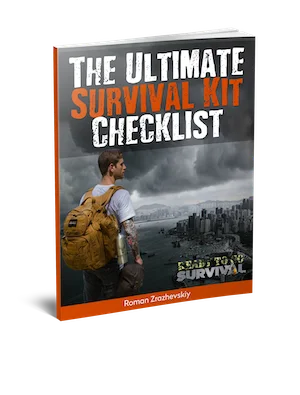





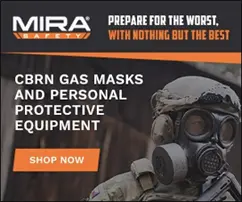

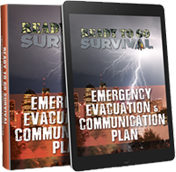
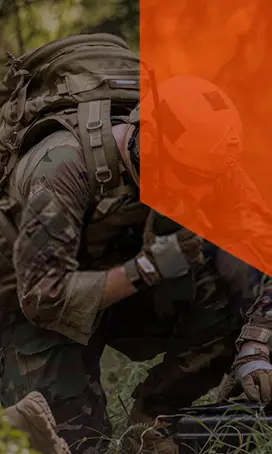
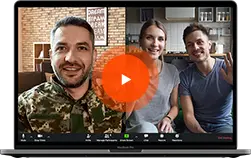
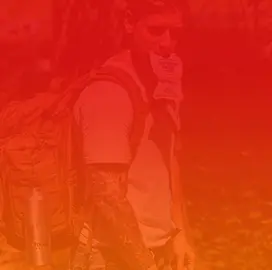

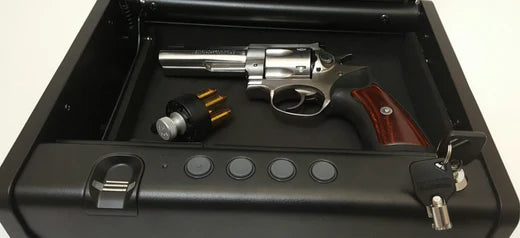
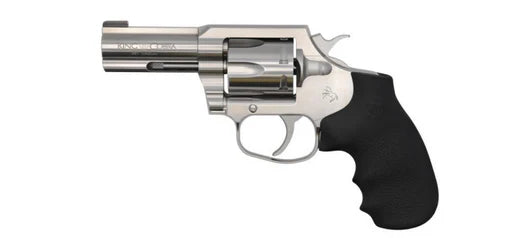




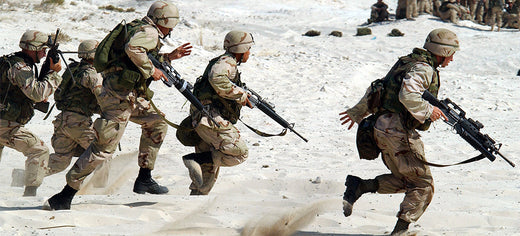
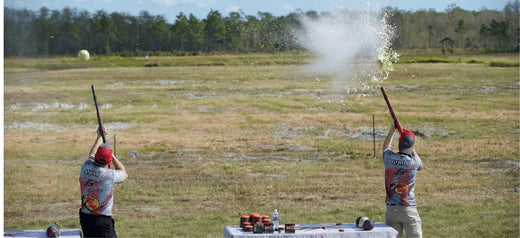
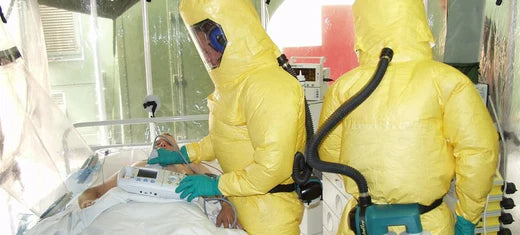

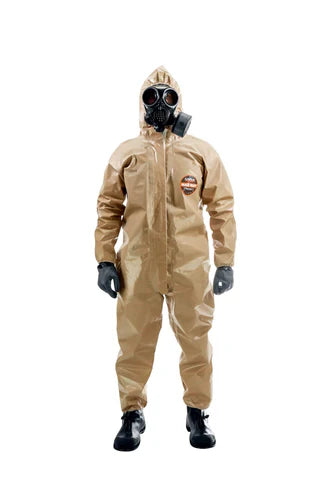


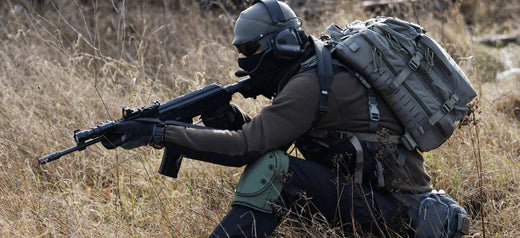


Leave a comment